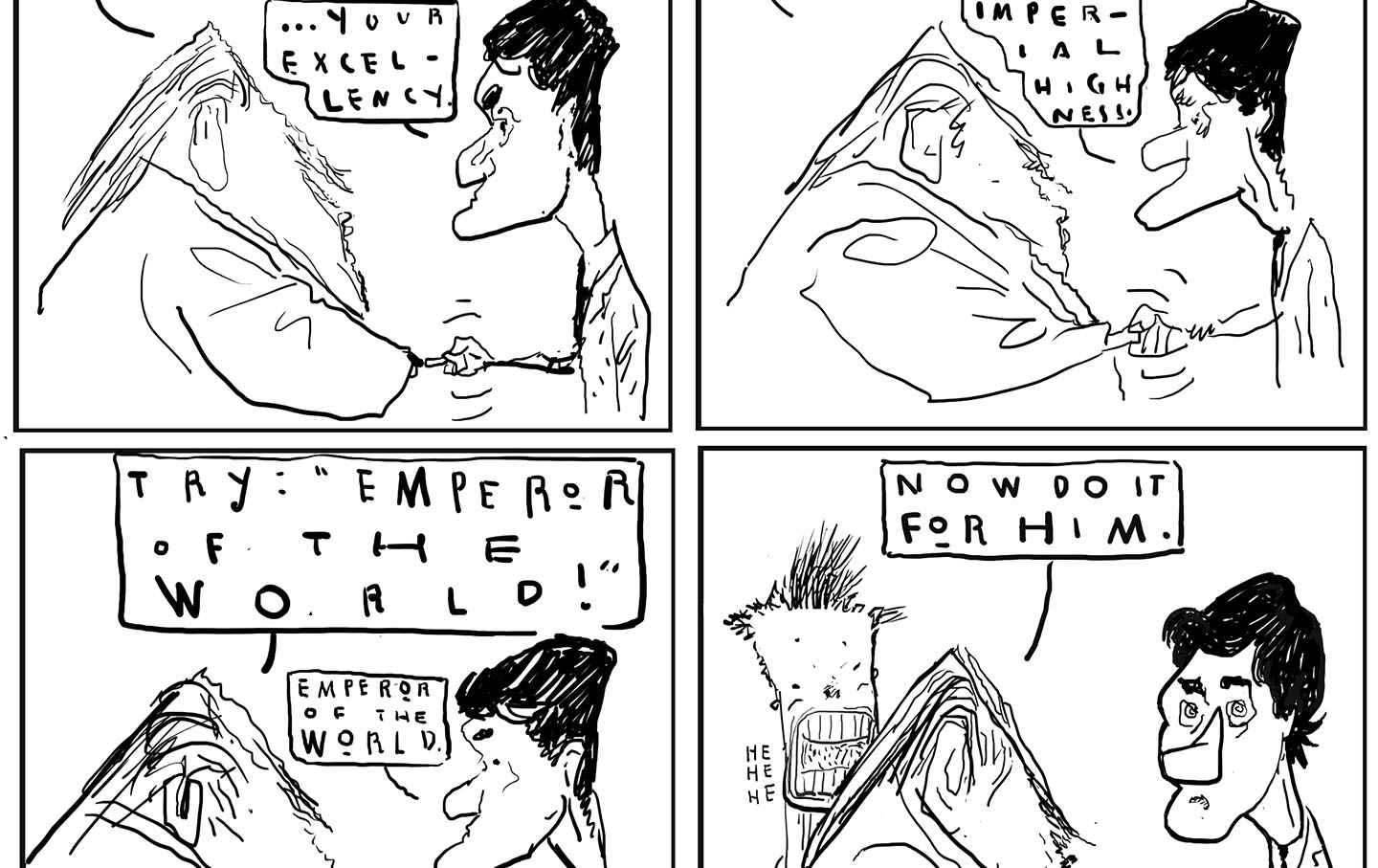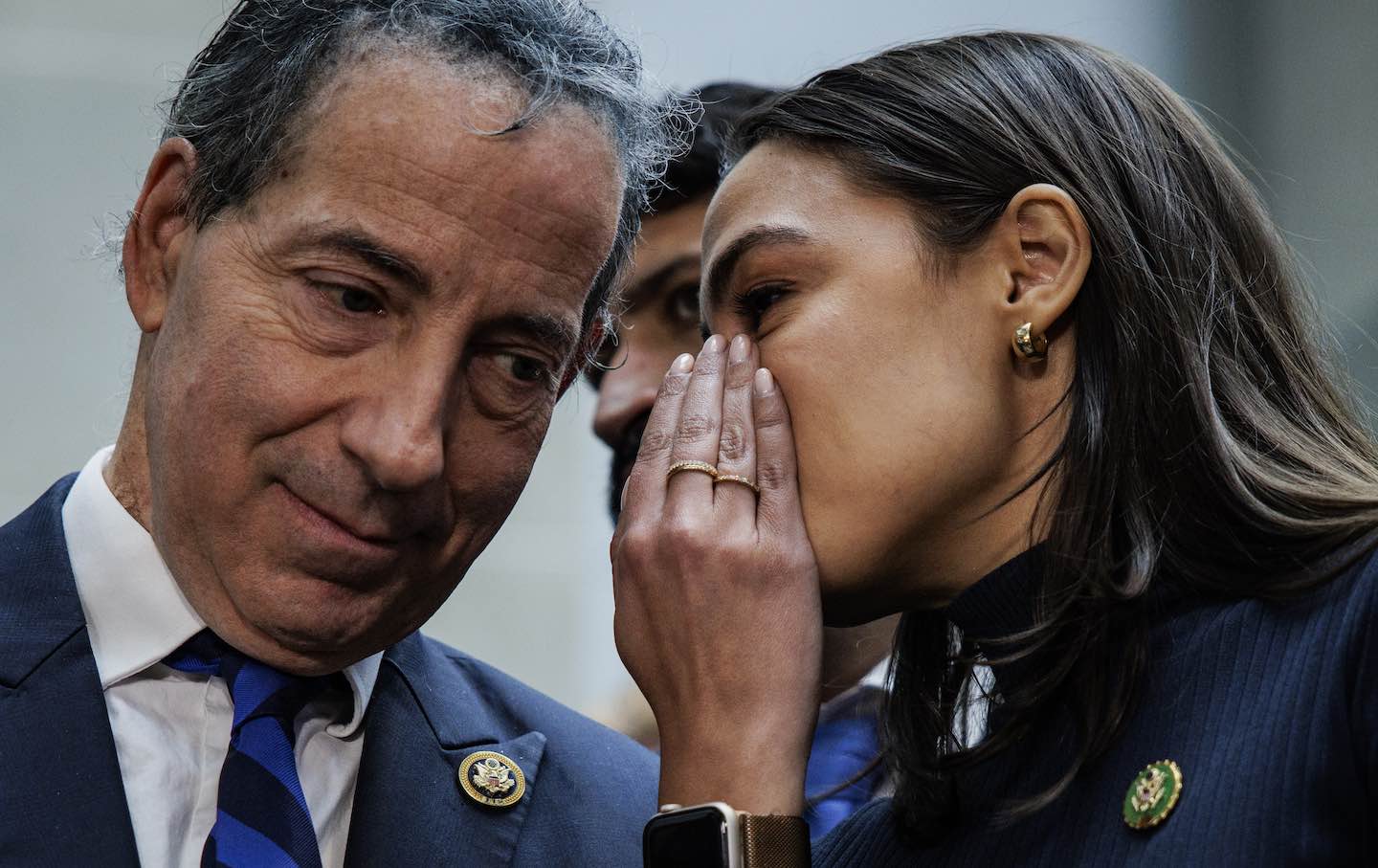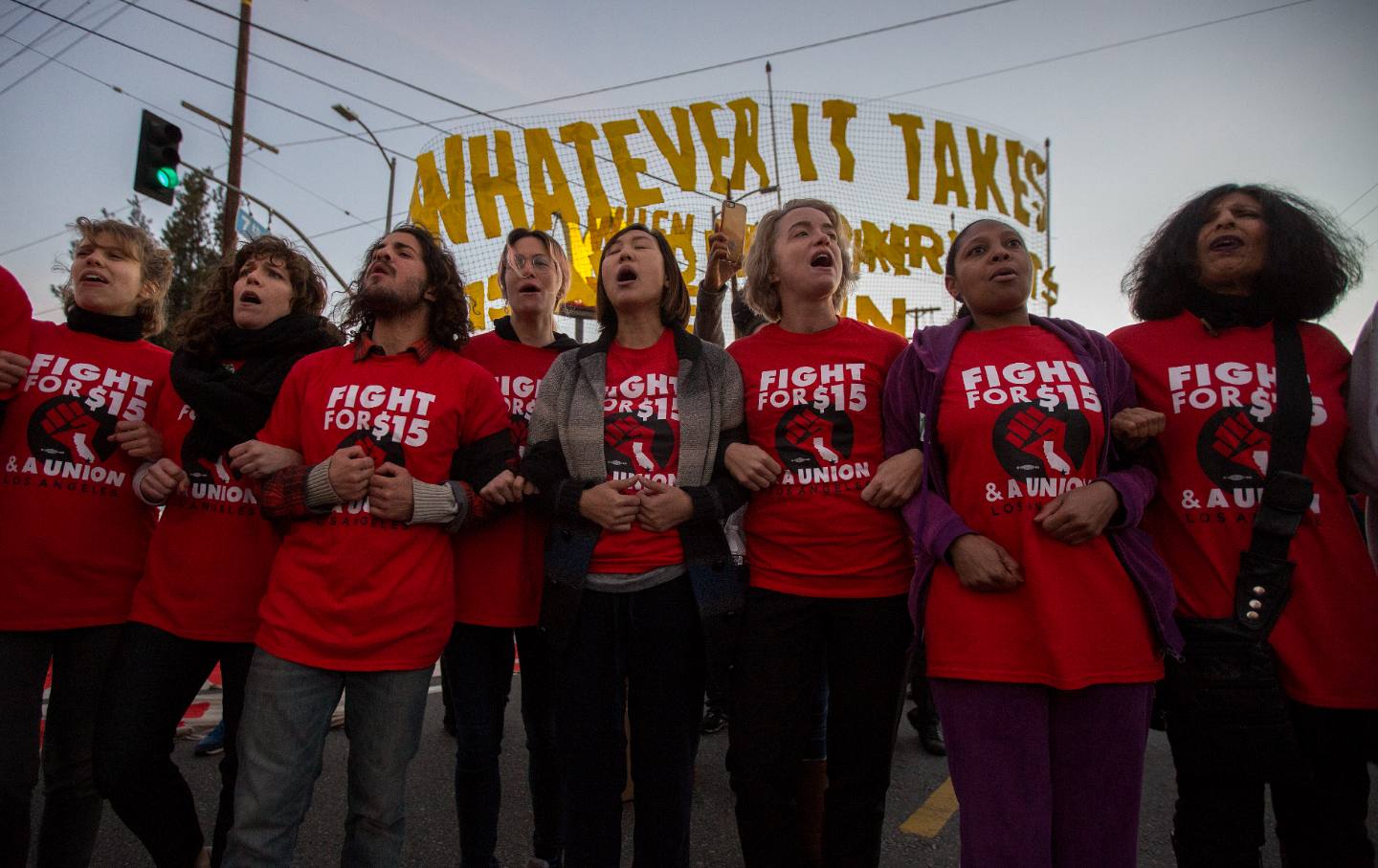The GOP Campaign to Sow Chaos at the Ballot Box Has Already Begun
A new lawsuit filed against the state of Nevada by the Trump team and its friends in the RNC says a lot about how they plan to suppress the vote in November.

Lara Trump, cochair of the Republican National Committee, appears on Sunday Morning Futures with Maria Bartiromo to discuss the RNC’s latest voter-suppression lawsuit.
(Screenshot / Fox News)The Republican National Committee along with the Nevada Republican Party and the Donald Trump campaign continued their relentless assault on voting rights Friday with a new lawsuit filed against the state of Nevada. The authoritarians are challenging Nevada’s vote-by-mail rules, which allow mail-in ballots to be counted up to four days after Election Day.
The lawsuit is one of several Trump and his cultists have brought—and one of many more they intend to bring—either attacking mail-in voting or trying to get voters kicked off of registration rolls. The lawsuits are their attempt to do everything they can to prevent people from voting, because, as January 6 reminded them, suppressing the vote is easier than stealing votes after the fact.
This particular lawsuit stirred panic over the weekend when RNC cochair Lara Trump went on Maria Bartiromo’s Fox News show to try to explain the complaint. Unfortunately, Chairwoman Trump seemed to lack a basic understanding of both the suit in question and our electoral process. During the conversation, Bartiromo suggested that the RNC and its coplaintiffs were asking battleground states to “stop counting ballots past election day” (yes, shut down the whole vote-counting operation when the clock strikes midnight). Trump responded: “Yeah, that’s exactly right, you can’t have ballots counted after elections are over.” Trump went on to say, “We want, on Election Day, for that to be the last day that mail-in ballots can be counted.”
I’m sure Trump and her father-in-law want that. I’m sure they think that timely and legally cast votes should be discarded if the election officials aren’t able to tabulate them all by midnight on Election Day. Instead of counting all the votes, the Trump clan just wants enough votes to be counted for Trump to win, then have everybody go home.
Thankfully, the lawsuit the RNC and Co. paid for against Nevada is not as extreme as Lara Trump made it sound. It doesn’t say anything about the Trump witchcraft of turning all votes into pumpkins should they not be counted by midnight on Election Day. Instead, the lawsuit takes aim at a rule passed by the Nevada legislature in 2021 that said any ballots postmarked by Election Day could be received and counted for up to four days after the election. It also stipulated that mail-in ballots received up to three days after Election Day don’t need to be postmarked; they are presumptively thought to be valid, even without a postmark or if the postmark is unclear.
The first part of this Nevada rule is nothing new: Nineteen states and territories allow mail-in ballots to be counted after Election Day as long as they have a postmark on or by Election Day; in fact, Alaska allows mail-in ballots to be received up to 10 days after the election; Illinois and Utah allow ballots to be received up to two weeks after Election Day. The second part of the rule—allowing ballots to be counted even if they don’t have a postmark—is novel, as far as I know.
I like this rule because it doesn’t punish the voter for potential clerical errors at the post office, and I like it because it takes discretion out of the hands of election officials. They don’t have to wonder and argue about when a ballot with, say, a smudged postmark, was actually mailed if they receive it within three days of the election. They can just presume it was validly cast and move on with their work.
If the Republicans were really concerned about mail-in ballots that might not have been validly cast, they would have stayed laser-focused on this postmark issue. I don’t think this issue is a big deal as it’s unlikely that someone would try to mail in a vote after Election Day to take advantage of the new rule, and it would be statistically insignificant if a couple of strange people did do that. But the rules of Trumpworld demand that all mail-in ballots are questioned, even if there is no earthly reason to question them. The RNC lawsuit challenges both of Nevada’s rules. The RNC’s lawyers lack the restraint to keep their antidemocratic screeching to the novel idea of not requiring a postmark and have instead opted to challenge the entire concept of receiving mail-in ballots after Election Day.
In this case, their legal overreach is probably a good thing: The Republicans can huff and puff but shouldn’t be able to blow mail-in ballots away, because the legal authority to challenge these rules doesn’t actually exist.
The RNC says that Nevada’s rule changes the date of Election Day, which is prescribed by Congress. But that is patently false. Literally every state has its own unique rules for when votes can be cast, when ballots can be mailed, and the procedures for counting and certifying votes. Nevada isn’t changing the date of the election any more than Arizona is when it allows people to vote up to 27 days before Election Day or West Virginia is when it accepts mail-in ballots up to five days after Election Day.
Personally, I think this situation is absurd. I think it is ridiculous that we’re all the way into the 21st century and we still don’t have one national election system. The fact that we have 50 different states with 50 different rules for casting and counting votes in a national election is bonkers and a terrible way to run a democracy. If the RNC is suddenly interested in making national elections fair and reasonable, they should call me or UCLA Law School professor and election law expert Rick Hasen; we have some ideas on how to make elections make sense.
Unfortunately, many of our ideas for how to fix the electoral system require a constitutional amendment, because the Constitution explicitly allows for the every-state-for-itself system of elections we have today. The problem, now and always, is federalism. Here’s the elections clause from Article I of the US Constitution:
The Times, Places and Manner of holding Elections for Senators and Representatives, shall be prescribed in each State by the Legislature thereof; but the Congress may at any time by Law make or alter such Regulations, except as to the Places of chusing Senators.
“Chusing” is in the original, because this part of the Constitution is so freaking old that we’re still running our elections based on the best guesses of people who didn’t have spell-check. But I digress.
The Constitution is, on its face, pretty clear that the states control both the “time” and the “manner” of national elections, unless their rules are directly superseded by an act of Congress. When it comes to Election Day, Congress says only this: “The Tuesday next after the 1st Monday in November, in every even numbered year, is established as the day for the election, in each of the States and Territories of the United States, of Representatives and Delegates to the Congress commencing on the 3d day of January next thereafter.” It doesn’t say anything about ballots needing to be received or counted on the day of the election. That’s why 19 states, including Nevada, can basically receive and count votes whenever they want.
The RNC lawsuit should be dismissed out of hand by the courts, even by Republican-controlled courts. A ruling that agrees with the RNC’s formulation of what “Election Day” means would cause chaos, not just in Nevada but throughout the country.
Of course, chaos is exactly what the Republicans want. Remember, the Nevada law at issue was passed in 2021. There’s already been a national election, the 2022 midterm election, run with Nevada’s rule in place. But the RNC didn’t sue Nevada before the last midterms or right after they saw how Nevada’s rules would practically play out (though they did try to gut a similar rule change in 2020, when Nevada liberalized mail-in voting procedures in response to Covid). No, the RNC is suing now, a mere five months before the next election.
Popular
“swipe left below to view more authors”Swipe →The plot here is to confuse voters, especially voters who prefer to vote by mail. We know that confusion is a voter suppression technique. If people think there is some legal disagreement about the validity of mail-in votes, some of them will just show up in person on Election Day, but others might not vote at all.
It’s all part of the strategy to disenfranchise as many voters as possible. Republicans enjoy large advantages in day-of election voting, partially because their voters are older and by definition conservative so they like to vote in the way they always have, and partially because they’ve been fed a steady diet of Fox News that tells them Election Day voting is somehow more legitimate. Instead of encouraging their voters to vote in whatever way is easiest for them, Republicans have doubled down on the notion of making it harder for everybody to vote, as they assume (rightly, I suspect) that their older, wealthier voters are better positioned to overcome hurdles than Democratic voters.
If Republicans simply believed in democracy, they’d be trying to win votes instead of discouraging voters from participating via mail-in voting. Instead of making voting less convenient, they should try making their policies less horrible. But they don’t believe in democracy. They only believe in Trump. They only want to count enough votes for him to win, and then throw away the rest. Republicans would be perfectly happy if states stopped counting votes as soon as Trump is winning 1-0.








